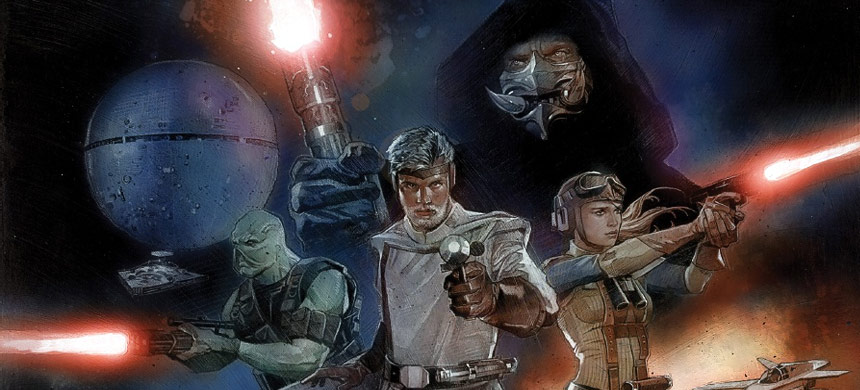
One of the greatest strengths of the Star Wars Expanded Universe has long been its adherence to the concept of a single (more or less) ironclad canon, in which all works are considered to be equally true and valid and any addition made to the franchise must respect those works which came before it and, in turn, must be respected by those that come after.
In terms of constructing and maintaining a logical and consistent vision of events occurring beyond what was covered by the films, it is almost impossible to heap as much praise upon this approach as it deserves. To tie together so many stories on such a scale, written by so many different authors over the course of so many years, it can be said with certainty that no comparable franchise exists. That is not to say, however, that there are no sacrifices that come with a system as strictly regulated as this one.
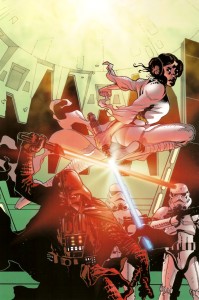
When the foundation is laid for any new work, great care must be taken to ensure that it doesn’t accidentally overwrite another story in the process. If even a single preexisting character is used, then the possibility of inconvenient overlap is present if any other events in their lives are known to have taken place around the same time. If their demise has already been written down, then their ultimate fate is predetermined and there is no alternative but for them to survive the events of the tale so that they may properly expire at their appointed time and place.
This system further favors a first-come-first-served approach in terms of exploring uncharted territory, where the first author to deal with a particular event or period in a character’s life is able to exert a defining influence over it, forcing all that follow to do so in their footsteps. Regardless of the quality of the original story or potential new information that may come out in the future that would have impacted it significantly (such as in the case of many novels released between the Original and Prequel Trilogies), the fundamental facts are, for better or for worse, etched in stone.
While the concept of canon, as it is now, does not permit us to go back and take a second swing at things, it does offer us a single, highly efficient loophole with which we can experiment freely, without regard to consistency or external continuity. The Infinities label, historically applied primarily to comics, shuffles a work off into a category existing beyond the boundaries of canon, having no influence on the greater Expanded Universe and free from the requirement to acknowledge any story other than its own. Most notably, it has been used several times to explore “What If?” scenarios – “what if Luke had failed to destroy the Death Star in A New Hope?”, “what if Luke had perished on Hoth at the beginning of The Empire Strikes Back?”, and “what if the plan to rescue Han from Jabba had failed in Return of the Jedi?”
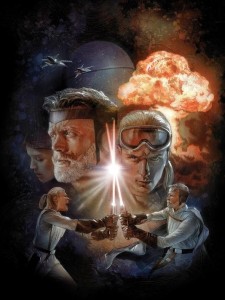
The true history of the Star Wars universe, as laid down by the films of George Lucas, is an established part of the fabric of the Expanded Universe that is impossible to alter without having the entire tapestry unravel in an instant, but the Infinities label offers us an unlimited number of opportunities to see where else the saga might have gone without the obvious downside of having to erase preexisting works to make room for them.
Though the Infinities name has traditionally been most strongly associated with comics, there is no particular reason for it to continue to be the case. Embraced wholeheartedly, it opens up countless new avenues of exploration for authors – three comics exist regarding alternate events for the Original Trilogy (though we’ve not even begun to touch upon the number of other possibilities that readily present themselves), but nothing of the sort exists for the Prequels or the broader Expanded Universe.
There’s simply no reason that a series in which, let’s say, Luke accepts his father’s offer to join forces and overthrow the Emperor could not be as compelling and interesting as any conventionally canon work – it would be a dramatic change of pace from everything we’ve become accustomed to over the past decades, and readers would be able to fully immerse themselves in this brand new and very different experience without any guarantees of the status quo ensuring the heroes’ victory or being burdened with concerns about its long-term implications on the future of the Expanded Universe.
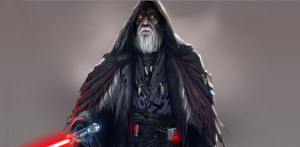
Video games are even better positioned to take advantage of the freedom offered by Infinities: one might even go so far as to say it’s the most natural category for them. As notoriously demonstrated by The Force Unleashed, it is often popular for the player character to be able to perform feats and significantly impact events in ways that would place them among the most exceptional beings in the universe, far more powerful and influential than almost anyone who appeared in the films and more than most prominent characters from the Expanded Universe. Though this may make for more enjoyable gameplay and ensure that the games sell well, it also makes it difficult to smoothly integrate these stories into a broader setting that normally runs according to a fundamentally different set of rules.
While many Star Wars games possess branching endings in which there is a canon “light side” option and a non-canon “dark side” option, the designers would be able to significantly expand their creative horizons if we liberated them from the necessity of having their games fit (relatively) seamlessly into the Expanded Universe. The Empire at War and Rebellion games of strategic galactic domination have (for obvious reasons) never had the course of their campaigns recognized as canon in the same way that other games have, but they were never any less enjoyable for it.
The massively multiplayer online role-playing game The Old Republic has often been noted for its extensive borrowing from elements of the saga, despite being set several thousand years prior to even the earliest film. From a marketing perspective, this makes a degree of sense: it allows for a universe that is familiar and attractive to casual fans and gamers, while at the same time maintaining a great deal of freedom for players to meaningfully shape the course of a galactic war without having to worry about coming into conflict with other stories.
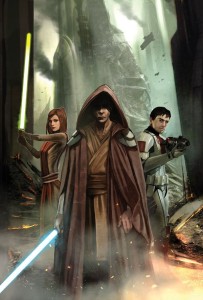
Had the Infinities label been applied to it, however, this issue could have been avoided from the very beginning, and produced an even more interesting and engaging game. Liberated from the chains of canon, a setting in which the Jedi Order that managed to escape the Purge largely intact and allied itself with Republic holdouts and Separatist remnants could have very easily resulted in a game that greatly resembled the initial situation of The Old Republic, possessing all the benefits and trappings of a story set during the time of the Original Trilogy without any significant limitations on what the player might do or who they might encounter.
That nearly all of its incredibly numerous works are able to coexist in a state of relative peace and equality is indisputably one of the greatest achievements of the Expanded Universe and the Star Wars franchise as a whole. However, while acknowledging a story as canon strengthens the collective whole, that status has no bearing on its quality. Simply stating that something exists outside of the canon Expanded Universe cannot deprive us of the pleasure we derive from it, unless we choose to allow it to.
We’ve thoroughly explored the lives of the Big Three and their closest associates, to the point where one begins to wonder how they have any room left during the Galactic Civil War for further adventures. We’ve covered the distant past and far future of the galaxy far, far away (both of which coincidentally continue to involve the Sith). With the announcement of the Sequel Trilogy, it is almost guaranteed that at least some works will find themselves displaced and have their canon status revoked.
Rather than mourn their loss, I choose to embrace the opportunities this presents. Even if they are no longer the sole true chronicle of the extended Skywalker-Solo clan and their predecessors and successors, their stories will always remain for us to return to whenever we like, and in their place they leave plenty of room to tell countless new tales, canon and non-canon alike.

One thought to “Infinities: Unlimited Possibilities”
Comments are closed.